Data Sovereignty Matters: Custom CRM and Control Over Data Location
In today's interconnected world, data sovereignty has become a crucial concern for businesses. Data sovereignty refers to the concept that digital information is subject to the laws and governance structures within the nation it is collected or stored. With varying regional regulations dictating how and where data should be stored, companies must ensure compliance to avoid legal repercussions. Custom Customer Relationship Management (CRM) solutions provide a significant advantage by offering control over data location, ensuring adherence to these regional regulations. Let's explore the importance of data sovereignty in CRM systems and how custom solutions address this critical need.
![[object Object]](https://clipl-web1.sgp1.cdn.digitaloceanspaces.com/images/clzmeq0ec00t632qg89dthstg.png)
Data sovereignty is fundamentally about who controls data and where it is stored. Different countries have unique regulations governing data storage and access. For instance, the European Union's General Data Protection Regulation (GDPR) mandates that personal data of EU citizens must be stored and processed within the EU, or in countries that offer similar levels of protection. Similarly, other regions have their own laws and standards, making it essential for businesses to manage data location effectively.
![[object Object]](https://clipl-web1.sgp1.cdn.digitaloceanspaces.com/images/clu85g32c004p4irz90k4e9u5.png)
Custom CRM solutions offer unparalleled flexibility and control over where and how data is stored and processed. Here’s how they enhance data sovereignty:
- Geographical Data Storage Control: Custom CRM systems allow businesses to specify the exact geographical locations for data storage. This ensures that data is stored within the required jurisdictions, complying with local regulations and avoiding potential legal issues.
- Compliance with Regional Regulations: By controlling data location, custom CRM solutions help businesses comply with regional data protection laws such as GDPR, CCPA, and others. This compliance is crucial for avoiding hefty fines and maintaining a trustworthy reputation.
- Data Residency Options: Custom CRM providers often offer data residency options, allowing businesses to choose data centers in specific regions. This ensures that data remains within the desired territory, addressing sovereignty concerns and enhancing security.
- Enhanced Data Security and Privacy: Custom CRM systems can be tailored to meet the stringent security and privacy requirements of different regions. This includes implementing local encryption standards, access controls, and data handling practices that comply with regional laws.
![[object Object]](https://clipl-web1.sgp1.cdn.digitaloceanspaces.com/images/clu85gvvd004t4irzgz1cbrbk.png)
- Regulatory Compliance: Custom CRM systems enable businesses to comply with a myriad of regional data protection regulations. This compliance not only avoids legal penalties but also builds trust with customers who are increasingly concerned about data privacy.
- Operational Flexibility: With the ability to choose data storage locations, businesses can adapt quickly to changing regulatory environments. This flexibility is particularly beneficial for companies operating in multiple jurisdictions with differing laws.
- Improved Customer Trust: Demonstrating a commitment to data sovereignty and privacy through the use of custom CRM solutions helps build customer trust. Customers are more likely to engage with businesses that prioritize their data security and comply with local regulations.
- Enhanced Data Control and Security: By controlling where data is stored, businesses can implement region-specific security measures, enhancing overall data protection. This localized approach to data security helps mitigate risks associated with data breaches and unauthorized access.
Conclusion
In the evolving landscape of data protection, data sovereignty has become a critical concern for businesses worldwide. Custom CRM solutions offer the necessary tools and flexibility to control data location, ensuring compliance with regional regulations. By choosing where and how data is stored, businesses can meet regulatory requirements, enhance security, and build trust with their customers.
Investing in a custom CRM solution is a strategic move towards achieving data sovereignty. It empowers businesses to navigate the complex web of global data protection laws, providing peace of mind and a competitive edge in today's data-driven economy. By prioritizing data sovereignty, companies can ensure that their customer data is managed with the highest standards of privacy and security.
























